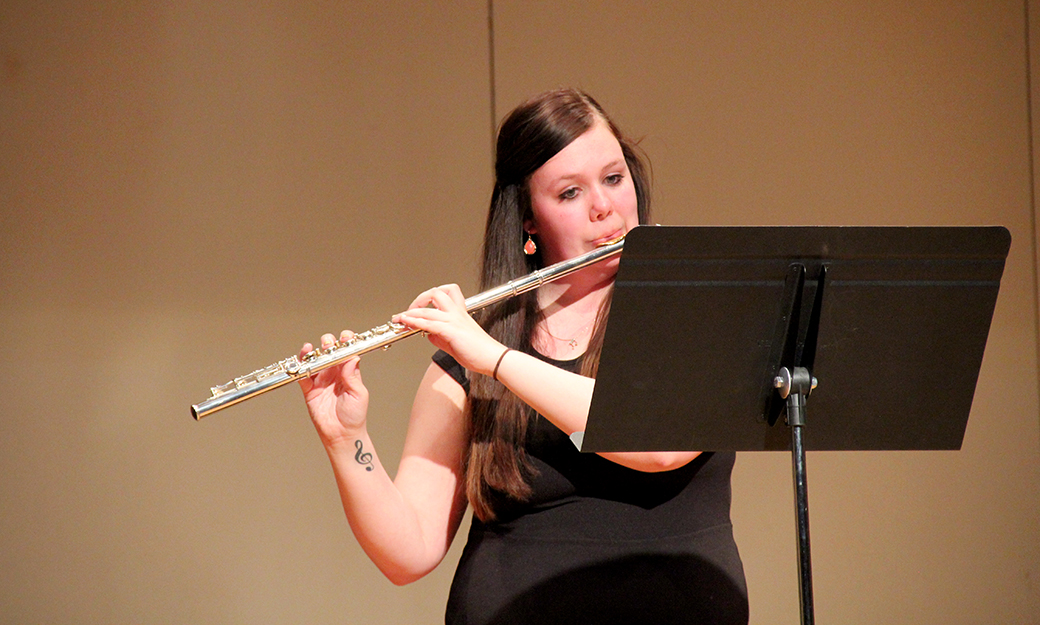
Music majors perform recitals to graduate
To earn some degrees students have to submit a paper or project to graduate, but for music majors a special requirement must be fulfilled.
Every year junior and senior music majors at the University of South Dakota perform at both vocal and instrumental music recitals to fulfill their graduation requirements.
Rick Rognstad, professor of music at USD, said the recitals performed by music students are specific to whether students are music performance majors or music education majors.
“It depends on the degree program that the student has chosen,” Rognstad said. “The senior recital for (music education majors) amounts to what we call a half recital.”
During “half recitals,” students generally pair up with someone else and the performances last about 30 minutes per student. The acts for music performance majors, however, usually run about an hour long and are performed individually.
“(The National Association of Schools of Music) require that every student have some sort of chamber music experience and it can be on recital or on someone else’s recital,” Rognstad said.
James Cooper, a second year graduate assistant and musical performance major, said his recital will consist of a mix of traditional and non-traditional songs that follow a story he specifically wrote for the recital.
“You’ll hear things that are from the Baroque period, the Classical period, the Romantic period — so following all of music history. I think my oldest piece is from 1680 something and my newest piece is from this year,” Cooper said.
Cooper said each of his 16 chosen pieces were “painstakingly” selected to go with the plot of his story. The hardest part of preparing for his recital, he said, has been memorizing his songs, which will be sung in French, English, Italian and German.
“Traditionally, a recital shows off your studies throughout your time at whatever university that you’re attending,” he said. “I don’t like the idea of just a check box recital where you just do things that you’ve done while you’re here.”
Rognstad said the recitals the students perform are graded and added into their GPA, but the grading takes place before the recital during a separate event where the student plays for a committee of professors.
“There’s what’s called a recital hearing and that’s where three committee members the student has chosen get together and we hear significant portions of the recital,” Rognstad said. “(We listen to) if they’re playing the music well, and generally they do. Many of the students choose to do a junior recital and some even a sophomore recital.”
Kaitlynn Wolfe, a junior music education and psychology major, said she is performing at a junior recital even though it is not required for her major.
“I only need a senior recital, but my teacher and I decided last year that it would be a good idea to do a junior recital,” Wolfe said.
Wolfe said her April 13 recital was split into two separate parts. For the first part she played a flute, and for the second part she played a saxophone. During one section of her performance, Wolfe played in a quintet, or a five person group.
“They’re my friends, so I kind of asked them last year if they would play in a quintet for me so then we kind of finalized it this year,” she said.
Wolfe said that one of the best parts of playing in a recital is being able to slowly progress on a piece of music over a period of time.
“In the end it’s very rewarding,” she said. “Knowing that I accomplished something and went above and beyond is probably the best part about it.”
(Photo: Junior Kaitlynn Wolfe performs a song on her flute during her junior recital performance in the Warren M. Lee Center for Fine Arts April 13. Miranda Letcher / The Volante)

